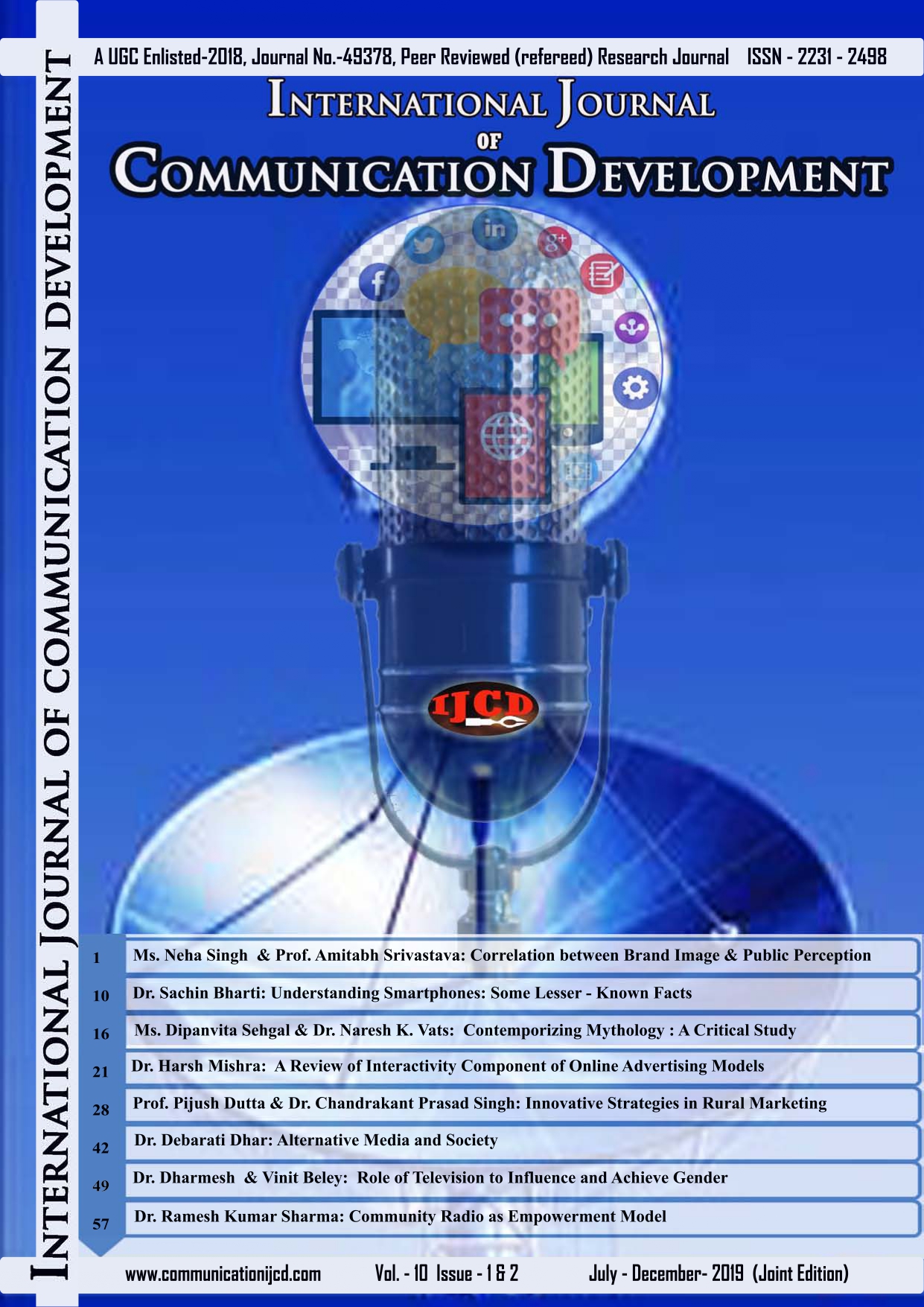Role of Television to Influence and Achieve Gender Equality in Indian Society: A Media Stratification Critique
##plugins.themes.bootstrap3.article.main##
Abstract
The role of Television to assess the influence on the aspect of gender equality has the theoretical base
in the ‘Democratic media participation theory’ and ‘agenda setting theory’ of mass media. Television
in India has consistently risen over the years, safely assuring that consumption of these media is
prevalent. Media is also an important communicator and influencer to shape social opinions, and by
extension, stereotypes. This role has a diverse range of effects because the content is predominantly
developed in the ‘polished’ sects of metropolitan urban centres where notions and lifestyles assumed
by genders are different than in semi-urban and rural areas, and therefore the same television content
consumed in different tiers of society
The paper investigates whether TV media have a role in how urban women and men are viewed in a
different light than women and men from other tiers, and how does it shape the attitudes towards
genders and gender equality, are some of the prime areas of interest in this study.
The study infers multiple studies in social psychology, sociology and communication to assess
parameters in stereotypes generally and gender stereotypes specifically, and how these can be
developed and influenced. Reflective analysis is employed to peruse and comment on how television
media can exploit its position of influence to create a fertile environment for gender equality in all
regions.



